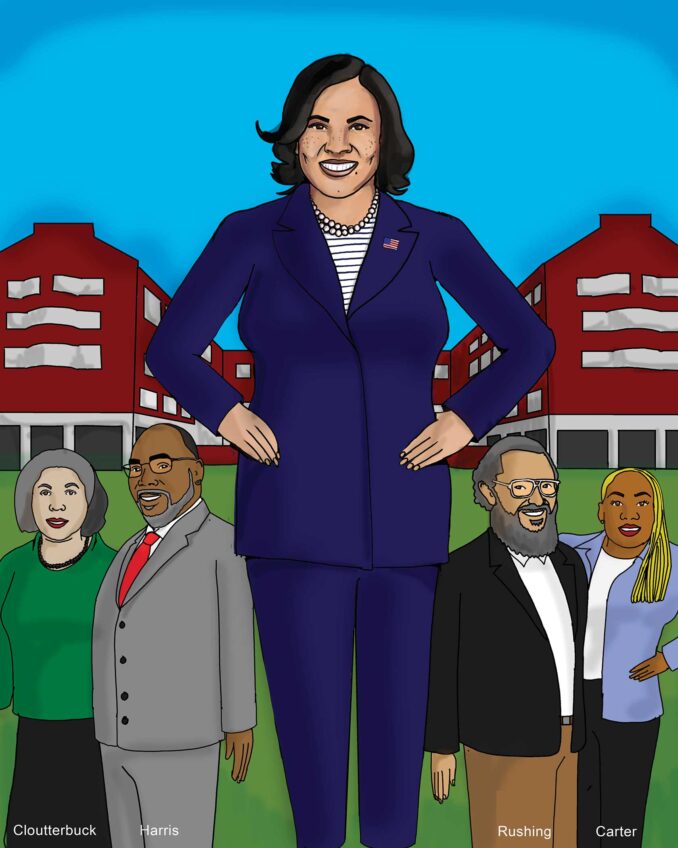
During the civil rights era the issues confronting African Americans were so apparent that there was little room for controversy among the leaders. Segregation, racial discrimination and the restriction of voting rights all had to go. While leaders could disagree with the strategy to achieve those goals there was little difference of opinion on the objectives.
Now times have changed. While many problems are still determined to be racial conflicts, it should be obvious to most observers that race is not always the primary issue. The controversy is really who will control the wealth and the votes. The nature of discrimination is often so subtle that it can be reasonably asserted that race is not at all the real issue.
A good example is the effort to establish the family allowance as a replacement for the traditional welfare requirement that no man be part of the household. It was expected that all men would work to support their families. If they failed to do so, the government would contribute to the women and children, but no man could be present.
This is a rule that applied to everyone regardless of race but it was especially severe for black families since employment for the men was sporadic because of racial discrimination. From the time that he was assistant secretary of labor in the Lyndon B. Johnson administration, Daniel Patrick Moynihan advocated for the family allowance form of welfare that did not require the absence of the man from the household.
In order to gain congressional support for the family allowance proposal, Moynihan published the 1965 report on “The Negro Family” to indicate how racial discrimination had adversely affected blacks. His report indicated among other facts that out of wedlock births for blacks was much higher than the rate for whites, an expected consequence of the discrimination that disrupted the formation of black families.
Rather than focus their attention around support for the family allowance plan, black leaders and liberals unleashed an attack against Moynihan and “The Negro Family” report. With this ill-advised focus on the assertion of black sexual morality, political incentive to support the family allowance plan faded in the Congress.
In a February 1967 article in Commentary Magazine, a disappointed Moynihan wrote:
The moment came when, as it were, the nation had the resources, and the leadership, and the will to make a total as against a partial commitment to the cause of Negro equality. It did not do so. But it was not Northern conservatives or Southern segregationists who stood in the way. … This time the opposition emanated from the supposed proponents of such a commitment: from Negro leaders unable to comprehend their opportunity; from civil-rights militants, Negro and white, caught up in a frenzy of arrogance and nihilism; and from white liberals unwilling to expend a jot of prestige to do a difficult but dangerous job…
Moynihan never gave up on the concept. In 1969, with Moynihan as his assistant for urban affairs, President Richard Nixon introduced the family assistance plan similar to Johnson’s proposal. It was designed to reduce poverty by providing a minimum stipend to families with children. There was some immediate approval of the concept but it ultimately died.
Even with a more vibrant press 50 years ago black leaders erred on the family allowance matter. One wonders how complex issues will be resolved in today’s technological society with even less reliance on the in-depth journalistic coverage than there was in 1965.






